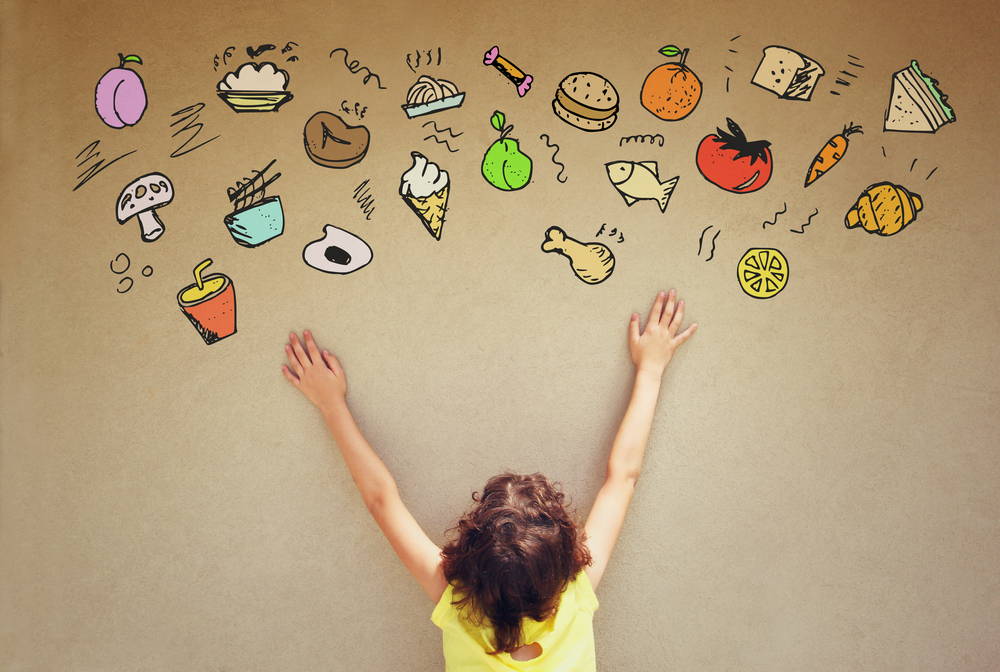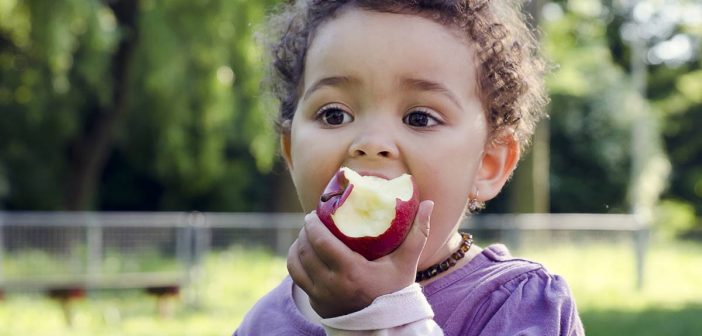One thing that certainly separates children from adults is their eating habits. Children are very picky when it comes to eating. They only eat what they like without a care of the nutritional value of the food. They eat to get happy and not healthy. As a parent, to raise a healthy child, it is your responsibility to ensure that your children eat foods that have important nutrients to support their cognitive and physical growth. That is the reason why every parent needs to understand what kinds of food are essential for children. Understanding an ideal diet will enable you to provide your children with all the nutrients like protein, vitamins, calcium, minerals, fibers etc. Here are a few considerations that can help you provide a healthy diet to your children.
 1) Balance their calories: Depending upon the age and growth pattern of your children, you will have to calculate the amount of calories they need in a day. In the growing years, calories play a very vital role in their overall nutrition. Chicken, egg, meat, soya bean, etc. can easily provide all the calories needed. If you think that your child is underweight or overweight, talk to your pediatrician about the calorie intake.
1) Balance their calories: Depending upon the age and growth pattern of your children, you will have to calculate the amount of calories they need in a day. In the growing years, calories play a very vital role in their overall nutrition. Chicken, egg, meat, soya bean, etc. can easily provide all the calories needed. If you think that your child is underweight or overweight, talk to your pediatrician about the calorie intake.
Here’s a calorie chart to help you better:
• Aged between two and three: 1,000 – 1,400 calories per day
• Aged between four and eight: 1,200 – 2,000 calories per day
• Aged between nine and 13: 1,400 – 2,600 calories per day
• Aged between 14 and 18: 1,800 – 3,200 calories per day
2) Increase their fruit and vegetable intake: Fruits and vegetables are a great source of many vitamins, minerals and fibers. The more colourful these fruits and vegetables are, the greater benefits they provide. Children usually avoid eating vegetables. So you will have to turn them into delicious recipes. Try preparing a few and see their reaction. Fruits can be taken in the form of juice as well.
 3) Give them a glass of milk: Milk is one very important ingredient for children. A healthy body needs strong bones. The calcium in milk helps strengthening the bones and makes them strong. Depending upon your child’s weight, you can opt for reduced-fat or low fat milk. A glass of milk at breakfast or before bedtime can do wonders for your children.
3) Give them a glass of milk: Milk is one very important ingredient for children. A healthy body needs strong bones. The calcium in milk helps strengthening the bones and makes them strong. Depending upon your child’s weight, you can opt for reduced-fat or low fat milk. A glass of milk at breakfast or before bedtime can do wonders for your children.
4) Pick the right combination of foods: Growing children need a lot of protein, fats, fiber and carbohydrates. The right combination of foods can help you provide all of it in one meal. Like kidney beans with rice or chicken pasta. See which combination your children like the most and cook it more often. Switch from white bread to whole wheat brown bread. Also, try to cook in olive oil if possible.
5) Let them munch on some snack: Not all snacks are bad for children. In fact, snacks can also become a part of nutrition. Like a protein bar or a handful of nuts. If your children don’t eat frequently or leave food on the plate, snacks can come to your rescue. 2-3 healthy snacks, combined with three meals a day, can easily meet your children’s everyday nutrition quota.
It will take some effort to encourage your child to eat a variety of foods with essential nutrients. It will be easier if you and your children eat the same food. Also, a discussion on healthy nutrition can be beneficial. Remember that children don’t change their food habits easily. For them taste comes before nutrition. So try to make your food as tasteful as you can to keep their taste buds as well as stomach happy.
Suggested reading – PinkBook: The future of the NHS paper red book and How many calories does a child of 7 to 10 need?







